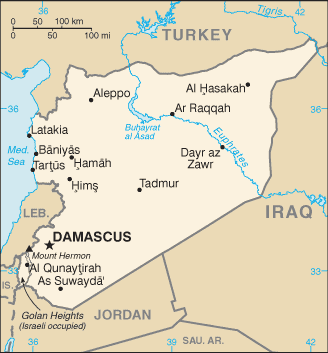The rebel Syrian National Council eventually gave way to a new umbrella group called the Syrian National Coalition (SNC), and now that too faces an uncertain future as the group’s leadership disputes grow and its viability as a political mouthpiece for the rebellion at large is in increasing doubt.
 Four separate rebel groups issued a joint statement about the SNC’s ongoing problems, insisting that the group is losing touch with fighters on the ground and is increasingly falling under the control of foreign backers, with the Saudi government and Qatar seen as the primary culprits in “hijacking” the group.
Four separate rebel groups issued a joint statement about the SNC’s ongoing problems, insisting that the group is losing touch with fighters on the ground and is increasingly falling under the control of foreign backers, with the Saudi government and Qatar seen as the primary culprits in “hijacking” the group.
The Saudi-led GCC and Western nations have been pushing for the SNC to piece together some sort of palatable leadership for the rebellion at large, but even among the group’s limited constituency they are struggling to choose leaders, with Moaz al-Khatib, the last president, resigning because he insisted no one would listen to him.
A big issue is that the SNC’s leadership is mostly drawn from political and religious opposition figures, while the people doing the heavy lifting in fighting the rebellion are seeing little representation. The combat groups are demanding big changes, and more influence over where the rebellion is going.
This problem is compounded by Western interests, particularly from the US government, urging the SNC to add more secular voices to their mostly Islamist leadership, which will dilute the combat groups even more, since Islamist fighters are dominating the battle on the ground. Losing the faith of the fighters risks making the group irrelevant.
That’s doubly true with next month’s peace talks in Geneva, as the rebel fighters aren’t keen on the idea of having a group that doesn’t represent them negotiating on their behalf. The SNC’s status in those talks is still somewhat up in the air, as they have repeatedly issued conflicting statements on whether or not they will participate, and today conceded that they haven’t really decided yet, let alone gotten to the point of negotiating who to send or what their platform will be.
In the end this could mean the Geneva Conference will amount to Syria and Russian negotiating with the US on stopping a war in which one of the primary belligerent factions isn’t at the table, and has no intention of abiding by any “deal” reached in their absence.


